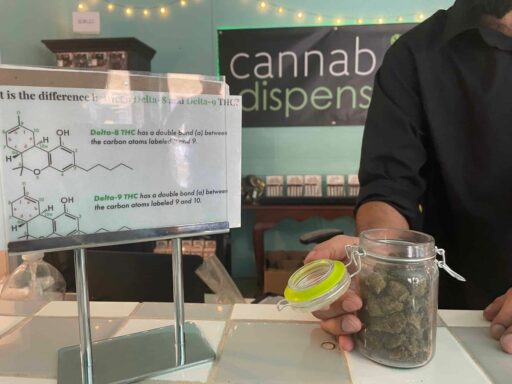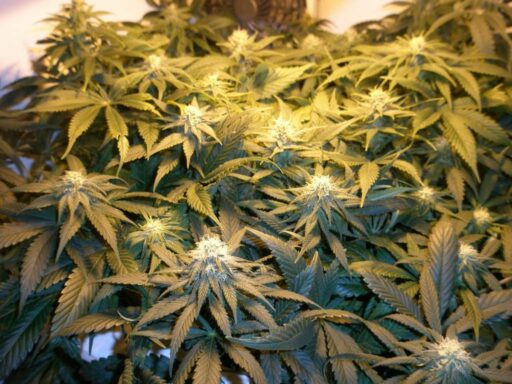In Tennessee, the marijuana laws are a tapestry of historical, medical, and legal nuances. As the state grapples with the complexities of medical versus recreational use, the debate continues to evolve amidst a changing political and economic landscape. This article provides a comprehensive overview of the current marijuana laws in Tennessee, the medical marijuana program, the ongoing debate over recreational use, the legal status of hemp and CBD, and important considerations for consumers.
Key Takeaways
- Tennessee’s marijuana laws have evolved over time, yet recreational use remains illegal with strict penalties for possession and distribution.
- The state’s medical marijuana program is limited, with specific qualifying conditions and a structured patient registration process.
- Public opinion in Tennessee is shifting, with increasing debate over the potential legalization of recreational marijuana and its economic benefits.
- Hemp and CBD occupy a legal gray area, with recent DEA policies impacting the regulation of marijuana seeds and CBD products.
- Consumers must navigate safety and legal considerations, including understanding product potency and staying informed about changing laws.
Current Status of Marijuana Laws in Tennessee

Historical Context and Legal Evolution
The legal landscape of marijuana in Tennessee has been shaped by a series of legislative changes and societal shifts. Tennessee’s approach to marijuana legislation has historically been conservative, with strict laws governing its use, possession, and distribution. Despite this, there has been a gradual evolution in policy, influenced by national trends and regional developments.
- 1915: Tennessee bans marijuana.
- 2014: SB 2531 is passed, allowing limited use of cannabis oil for patients with intractable seizures.
- 2016: Full medical marijuana bills fail, but legislature increases penalties for third and subsequent marijuana possession offenses.
While Tennessee has not embraced comprehensive medical cannabis laws like many of its neighbors, it has taken small steps towards acknowledging the medical value of marijuana.
The state’s position is particularly notable given that six of its eight border states have more progressive cannabis policies. This regional context highlights the complexity of marijuana legislation within the United States, where state laws can significantly diverge.
Medical vs. Recreational Use
In Tennessee, the distinction between medical and recreational marijuana is clear-cut, as both are currently illegal. This strict stance means that residents and visitors alike must be aware of the state’s laws to avoid legal issues. Despite the illegality, there is a growing conversation around potential medical benefits and the implications of legalization.
- Adult-use recreational marijuana and medical marijuana are both prohibited.
- Possession of any amount is subject to legal penalties.
- There is no established medical marijuana program to provide guidance or legal access.
While the debate continues, the current legal framework offers no leeway for the use of marijuana, whether for recreational or medicinal purposes. The absence of a medical marijuana program further complicates the situation for those seeking relief from chronic conditions.
Understanding the legal landscape is crucial for anyone considering the use of cannabis products in Tennessee. The state’s firm position on marijuana underscores the importance of staying informed and compliant with local laws.
Penalties for Possession and Distribution
In Tennessee, the penalties for marijuana possession and distribution are notably stringent. Possession of even small amounts of marijuana can lead to significant legal consequences. For instance, possession of up to half an ounce of marijuana is considered a misdemeanor, which can result in a fine and potential jail time.
The severity of penalties escalates with the amount of marijuana in question and whether the intent to distribute is evident. Repeat offenses can lead to harsher punishments, including longer jail sentences and higher fines.
Distribution or intent to distribute marijuana is treated as a more serious offense, with penalties varying based on the quantity of the substance and other factors such as proximity to schools. Below is a table summarizing the penalties for possession and distribution:
| Amount | Possession Penalty | Distribution Penalty |
|---|---|---|
| <= 1/2 oz | Misdemeanor, Fine, Jail Time | Felony, Higher Fines, Longer Jail Time |
| > 1/2 oz to 10 lbs | Felony, Fine, Jail Time | Felony, Significant Fines, Lengthy Jail Time |
| > 10 lbs | – | Felony, Major Fines, Extended Jail Time |
It is crucial for residents and visitors to be aware of these laws to avoid inadvertently violating them. The state’s stance on marijuana is subject to change, so staying informed about the latest legislation is essential for compliance.
Understanding Tennessee’s Medical Marijuana Program
Qualifying Conditions and Patient Registration
In Tennessee, the journey towards medical marijuana use begins with understanding the qualifying conditions. The proposed Tennessee Medical Cannabis Act outlines specific diseases and conditions that would allow patients to legally obtain and use medical marijuana. Registration for eligible patients is a critical step, ensuring they are recognized by the state and can access the medicine they need without legal repercussions.
To register, patients must provide proof of their qualifying condition, typically through medical documentation from a healthcare provider. The process is designed to be straightforward, allowing patients to focus on their health rather than bureaucratic hurdles.
It is essential for patients to keep abreast of the latest developments in the law to ensure compliance and maintain access to their medication.
Access to Medical Marijuana Products
In Tennessee, the availability of medical marijuana products is tightly regulated. Patients who are registered and meet the qualifying conditions can obtain products from state-licensed dispensaries. The Tennessee Department of Agriculture is currently working on new regulations that may affect the types of cannabis products available to consumers, including non-marijuana cannabis items.
While the state does not have a full-fledged medical marijuana program, certain cannabis oil products are legal for patients with specific medical conditions. These products must contain no more than 0.9% THC by weight and are typically available in the form of oils, tinctures, or capsules.
It is essential for patients to ensure that they are in compliance with state laws when purchasing and possessing medical marijuana products. The legal landscape is subject to change, and staying informed is crucial for legal and safe access.
Patients should also be aware of the potential changes in the industry, as highlighted by recent news indicating that Tennessee’s THC-A marijuana industry could face new challenges due to upcoming regulations. This underscores the importance of monitoring the evolving legal environment to maintain access to necessary treatments.
Legal Protections for Patients and Caregivers
In Tennessee, the legal framework surrounding medical marijuana provides certain protections for registered patients and their caregivers. These protections are crucial to ensure that individuals who legally obtain and use medical marijuana for qualifying conditions are not subject to prosecution.
While the specifics can vary, generally, registered patients and caregivers are allowed to possess certain amounts of medical marijuana without fear of legal repercussions. It’s important for patients and caregivers to be aware of the limits and comply with all regulations to maintain these protections.
The legal landscape is continually evolving, and staying informed is key to navigating the complexities of medical marijuana laws.
Here is a list of common protections typically afforded to patients and caregivers in states with medical marijuana programs:
- Exemption from prosecution for possession of medical marijuana within prescribed limits
- Protection against discrimination in employment, housing, and child custody cases
- Access to medical marijuana from state-licensed dispensaries
- Legal defense for driving under the influence if not impaired and within legal possession limits
It is essential for patients and caregivers to understand their rights and the extent of legal protections to avoid unintended legal issues.
The Debate Over Recreational Marijuana in Tennessee
Public Opinion and Political Climate
In Tennessee, the public opinion on marijuana legalization is a complex tapestry, reflecting a diverse range of views. Despite extremely high support, the state’s laws remain stringent against both recreational and medical cannabis use. This dichotomy is evident in the political arena, where some Republican lawmakers have shown openness to legalizing cannabis, suggesting a shift in the traditional partisan perspectives on the issue.
The political climate is marked by a cautious approach to reform, with legislative proposals often facing significant hurdles. However, the conversation is evolving:
- Growing public support for medical marijuana
- Advocacy groups pushing for decriminalization
- Economic arguments gaining traction among policymakers
- Bipartisan efforts to explore the benefits of hemp and CBD
The state’s stance on marijuana remains a contentious topic, with ongoing debates likely to influence future legislative sessions.
Economic Implications of Legalization
The legalization of marijuana carries significant economic implications for Tennessee. The potential for job creation and tax revenue is a central argument for proponents of legalization. The cannabis industry has shown to be a robust job creator in states where recreational use is legal, spanning cultivation, retail, and ancillary services.
- Job creation in agriculture, retail, and ancillary services
- Increased tax revenue from sales and business taxes
- Savings on law enforcement and judicial resources
The economic benefits of legalization extend beyond direct cannabis sales. A legal market can also lead to savings in law enforcement and judicial resources, as fewer resources are required to prosecute marijuana-related offenses. Additionally, the secondary economic effects, such as increased tourism and the development of a new industry, can provide a further boost to the state’s economy.
Comparative Analysis with Other States
When examining Tennessee’s stance on marijuana in comparison to other states, it becomes evident that there is a wide spectrum of regulatory environments across the nation. Every U.S. state approaches possession, use, cultivation, distribution, and criminalization regulations for marijuana differently.
The following table provides a snapshot of the legal status of marijuana in a selection of states, illustrating the diversity of laws:
| State | Medical | Recreational | Decriminalized |
|---|---|---|---|
| Arizona | Yes | Yes | Yes |
| California | Yes | Yes | Yes |
| Colorado | Yes | Yes | Yes |
| Tennessee | Limited | No | No |
| Texas | Limited | No | No |
While Tennessee has not legalized recreational marijuana, it is important to note that several neighboring states have made significant strides in reforming their marijuana laws, which could influence future legislative changes within Tennessee.
The legal landscape is continuously evolving, and Tennessee residents must remain vigilant to understand how these changes may affect them, especially when traveling to or from states with differing marijuana laws.
Navigating Legal Gray Areas: Hemp and CBD in Tennessee

Federal vs. State Regulations on Hemp
The interplay between federal and state regulations on hemp cultivation and sale is a complex one. Federal law, through the 2018 U.S. Farm Bill, legalized the cultivation of industrial hemp, setting the threshold for THC content at not more than 0.3% on a dry weight basis. This move opened the door for states to develop their own hemp programs, provided they comply with federal standards.
In Tennessee, state laws align with federal regulations, allowing licensed farmers to grow hemp in accordance with both the Agricultural Act of 2014 and the 2018 Farm Bill. However, the state maintains its own set of guidelines and licensing requirements that must be met.
The recent DEA policy change regarding marijuana seeds with less than 0.3% THC being classified as hemp rather than a controlled substance underlines the evolving nature of cannabis regulation.
While the FDA has not evaluated hemp products for safety or efficacy, consumers are advised to consult with a physician before use, especially if pregnant, breastfeeding, or at risk of failing a drug test due to trace amounts of Delta-9 THC.
Availability and Regulation of CBD Products
In Tennessee, the availability and regulation of CBD products are largely influenced by the state’s adherence to the 2018 Farm Bill. CBD products must be derived from industrial hemp and contain no more than 0.3% delta-9 THC on a dry weight basis to be considered legal. This aligns with federal guidelines that classify industrial hemp as an agricultural commodity rather than a controlled substance.
Consumers should be aware that while CBD products are legal under state and federal law, the FDA has not evaluated most of these products for safety or efficacy. As such, it is crucial for consumers to perform due diligence when selecting CBD products, ensuring they are lab tested and meet the legal requirements for THC content.
It is important to note that the use of CBD products may still pose a risk for a failed drug test due to trace amounts of THC that could be present. Purchasers should be informed of this risk and consider it when consuming CBD products.
The following list outlines the key considerations for consumers when navigating the CBD market in Tennessee:
- Verify that the CBD product is derived from legally grown industrial hemp.
- Check for lab testing to confirm THC content does not exceed the legal limit.
- Understand that the FDA has not approved most CBD products for medical use.
- Be aware of the potential risk for a failed drug test due to trace THC levels.
Impact of the DEA’s Policy on Marijuana Seeds
The Drug Enforcement Agency’s (DEA) recent policy update has clarified the status of marijuana seeds, distinguishing them from other cannabis products. As of April 15, 2022, seeds with less than a 0.3% THC concentration are classified as hemp and are not subject to the Controlled Substances Act. This distinction has eased the process for cannabis growers and consumers alike, who can now legally purchase and mail seeds across state lines without the same level of legal scrutiny.
The DEA’s policy change is a pivotal moment for the cannabis industry, potentially opening up new avenues for commerce and cultivation.
The implications of this policy are far-reaching, with an increase in seed sales and home growing, as individuals can bypass dispensaries. Regular cannabis seeds, which are not genetically modified, are particularly sought after for their natural qualities and the ability to create unique strains. The table below outlines the types of seeds and their characteristics:
| Seed Type | Description |
|---|---|
| Regular | Non-genetically modified; used for creating new strains |
| Feminized | Bred to eliminate male chromosomes; produce only buds |
| Autoflower | Automatically switch from vegetative growth to flowering |
This policy shift reflects a broader trend towards a more nuanced understanding of cannabis products and their legal status.
Safety and Legal Considerations for Consumers

Understanding the Potency and Effects of Different Products
When exploring the diverse landscape of marijuana products, consumers are met with a spectrum of potencies and effects. Understanding the potency and effects of different products is crucial for a safe and enjoyable experience. The potency of a product is largely determined by its concentration of THC, the psychoactive component, and CBD, known for its therapeutic properties.
Options in the market vary widely, from lighter, more fluid consistencies to thicker, more resinous varieties. Each type contributes uniquely to the overall potency and experience. For instance, products like Moon Rocks, which are cannabis buds dipped in hash oil and then rolled in kief, are known for their intense texture and potent effects.
It is essential to start with a lower potency product and gradually increase the strength as you become more familiar with its effects.
Here are some best practices for consumers:
- Start with a small dose and wait to see the effects before consuming more.
- Ensure your equipment is clean and suited for use with high-potency products.
- Consult with healthcare professionals if considering medicinal use.
- Familiarize yourself with your tolerance levels and the effects of high-THC products.
Best Practices for Responsible Consumption
Responsible consumption of cannabis is essential for both personal safety and legal compliance. Understanding the potency and effects of different products is key to a safe and enjoyable experience. Here are some best practices to consider:
- Start with a low dose, especially if you’re new to cannabis or trying a new product.
- Be aware of the delayed effects that can occur with edibles, which can take up to two hours to fully manifest.
- Avoid mixing cannabis with alcohol or other substances that can amplify its effects.
- Use cannabis in a safe and comfortable environment, preferably with someone who can assist if needed.
It’s important to stay informed about the latest cannabis laws and regulations in your area, as they can change frequently. Keeping up with marijuana news and updates is a good way to ensure you’re consuming legally and safely.
Remember, the method of consumption can greatly influence your experience. Whether you prefer smoking, vaporizing, or ingesting edibles, each method has its own onset time and duration of effects. Choose the method that best suits your needs and always consume responsibly.
Staying Informed About Changing Laws and Policies
In the ever-evolving landscape of marijuana legislation, staying informed is crucial for both consumers and businesses. Keeping abreast of the latest legal changes can help avoid unintentional violations and ensure compliance with state regulations. The recent news about the Tennessee Department of Agriculture‘s proposed guidelines, following a new state law, suggests significant changes may be on the horizon for the hemp industry in Tennessee.
To stay updated, consider the following steps:
- Regularly check official state websites for updates on marijuana laws.
- Subscribe to newsletters from reputable sources that track legislation changes.
- Attend community meetings and webinars that discuss local and state regulations.
- Engage with advocacy groups that provide insights and updates on marijuana policies.
It is essential to understand that legal interpretations can vary, and staying informed through multiple channels can provide a more comprehensive view of the current legal climate.
Remember, the legal status of marijuana-related products can change rapidly, and what is permissible today may not be tomorrow. By taking proactive measures to stay informed, individuals and businesses can navigate the complexities of marijuana laws with greater confidence and legal awareness.
Conclusion
As we have navigated through the complexities of marijuana laws in Tennessee, it’s evident that the state’s stance on cannabis remains stringent compared to the evolving landscape of legalization across the country. Understanding the local regulations is essential for residents and visitors alike to ensure compliance and avoid legal repercussions. While the legal environment may change, staying informed and adhering to current laws is crucial for the safe and legal use of marijuana. As the conversation around cannabis continues to grow, it will be interesting to see how Tennessee’s laws adapt in the future.
Frequently Asked Questions
What is the current status of marijuana laws in Tennessee?
As of the latest information available, marijuana remains illegal for recreational use in Tennessee. The state has not established a comprehensive medical marijuana program either; however, certain individuals with specific medical conditions may be eligible for limited cannabis-based CBD oil treatments under state law.
What are the penalties for marijuana possession in Tennessee?
Penalties for marijuana possession in Tennessee can range from a misdemeanor for small amounts, which could include fines and possible jail time, to felony charges for larger quantities or distribution, leading to more severe fines and longer incarceration periods.
How can patients access medical marijuana products in Tennessee?
Access to medical marijuana products in Tennessee is highly restricted. Only cannabis oil containing no more than 0.9% THC is allowed for patients with certain qualifying conditions. Patients must obtain a legal recommendation from a licensed physician to access this treatment.
What is the public opinion on recreational marijuana legalization in Tennessee?
Public opinion on recreational marijuana legalization in Tennessee is varied, with some showing support for legalization and others opposing it. The political climate remains hesitant on the issue, with no immediate plans for recreational legalization.
How does the DEA’s policy on marijuana seeds impact Tennessee?
The DEA’s policy that marijuana seeds with less than a 0.3% THC concentration are considered hemp has implications for Tennessee. It means that such seeds are no longer regulated under the Controlled Substances Act, potentially opening up avenues for legal hemp cultivation and sale in the state.
What are some best practices for responsible consumption of cannabis products?
Best practices for responsible cannabis consumption include understanding the potency and effects of different products, adhering to local laws and regulations, using cannabis in a safe and private setting, and avoiding operating vehicles or machinery while under the influence.





